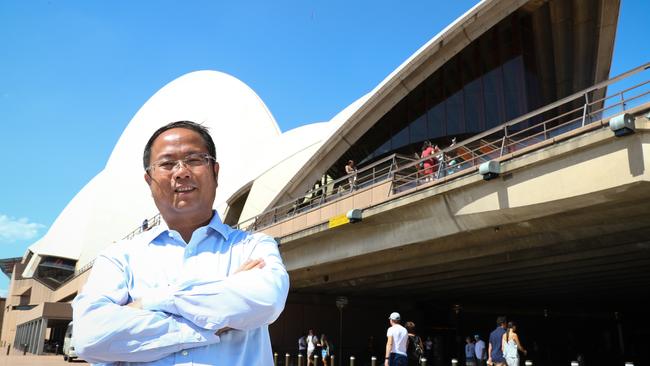Beijing ‘front’ group takes over top lobbying role
A Beijing-backed “front” allegedly takes a prime role in lobbying politicians in place of banished developer Huang Xiangmo.

An organisation branded a Beijing-backed “front” has allegedly taken over the dominant role in lobbying Australian politicians for support in place of banished property developer Huang Xiangmo.
The Independent Commission Against Corruption will start six weeks of public hearings on Monday following months of behind-the-scenes investigations and a raid on the NSW ALP’s Sydney headquarters in December related to the alleged circumventing of state laws on political donations.
At the centre of the ICAC hearings, which will focus on large sums given to the NSW ALP by Chinese donors at a 2015 restaurant dinner attended by Bill Shorten and other Labor luminaries, is the involvement of billionaire property developer Mr Huang.
He was highly influential until recently as the head of a Sydney-based organisation called the Australian Council for the Promotion of the Peaceful Reunification of China, which courted local politicians and forged close ties with some on the Labor side, including disgraced former senator Sam Dastyari.
According to leading academics and China watchers, the influence of Mr Huang and his ACPPRC organisation has now faded because of his role in the NSW Labor donations scandal, Mr Dastyari’s resignation and the government’s refusal to allow his re-entry to Australia after ASIO branded him a “spy”.
It is claimed that another “front” group with links to China’s ruling Communist Party called the Australia China Economic Trade & Culture Association is now more actively seeking to influence local politicians and seek support for Chinese government policies.
New NSW Labor leader Jodi McKay, previously linked with Mr Huang’s ACPPRC, last week met with ACETCA leaders in Sydney.
A spokesman for Ms McKay said yesterday there was nothing unusual about the meeting.
It amounted to a “meet and greet” and she had attended its events previously.
Asked whether she had concerns about reported ACETCA links to the Chinese Communist Party’s United Front Work Department, the spokesman said Ms McKay would not have agreed to a meeting if she were concerned.
“Almost a quarter of Jodi’s seat of Strathfield are Chinese Australians,” he said.
“She engages with all communities across what is a highly multicultural electorate.
“She believes the Chinese community deserves representation as much as any other, and will continue to represent them without fear or favour.
“Jodi’s reputation for integrity speaks for itself.
“No one raised anything inappropriate with Jodi during those meetings, and if they did, it would be given short shrift.”
Alex Joske, a China expert at the Australian Strategic Policy Institute, said the ACETCA had increased its influence since Mr Huang’s group was “exposed as a hub of influence with links to the Chinese Communist Party”.
He said there were many crossover members who were in both groups. Mr Huang was previously an ACETCA patron.
Clive Hamilton, professor of public ethics at Charles Sturt University and author of Silent Invasion, a book highly critical of China’s influence in Australia, said the ACPPRC was now “toxic”.
“The public image of Huang Xiangmo’s ACPPRC was damaged by the Dastyari affair,” Professor Hamilton said.
“It’s now toxic to politicians and Huang’s absence has weakened it.”
He said ACETCA seemed to have replaced ACPPRC as the Chinese Communist Party’s main influence organisation in Sydney.




To join the conversation, please log in. Don't have an account? Register
Join the conversation, you are commenting as Logout